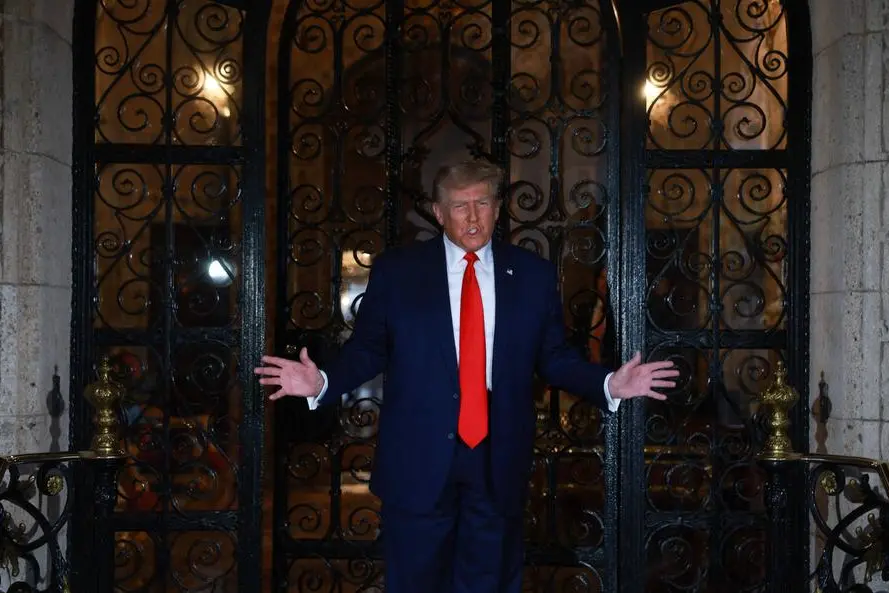PHOTO
The sweeping punishment meted out Friday by a New York judge on Donald Trump and his family business deals a serious blow to the former president in his longtime home market.
The ruling includes some $355 million in fines, as well as a three-year ban on Trump's service as a corporate officer and his ability to seek loans from New York banks.
The judgment maintains the independent monitor that has frustrated the Trump family, and adds an independent director of compliance.
"The business in many respects is still owned by the family, but it is out of the family's control," said Will Thomas, a business law professor at the University of Michigan.
Although Trump is expected to appeal the ruling, legal experts do not see a viable path for avoiding the $355 million in penalties, which is essentially due immediately.
Rather than the paying the entire sum, Trump could obtain a bond. But garnering a bond requires an upfront payment of usually around 10 percent, or $35 million, which Trump would not get back even in a successful appeal, said Brian Quinn, a professor at Boston College Law School.
While Trump is known for pushing legal challenges to their limit -- or past them -- government authorities in New York state have leverage over the company.
The company's properties in the state include the Trump Tower, 40 Wall Street and the Trump Park Avenue hotel, which is known partly as the venue where Bob Dylan met the Beatles for the first time.
Those assets could be seized if Trump doesn't honor the agreement, Thomas said.
Independent monitor in control
The estimated worth of Trump's New York real estate assets is some $690 million, according to Forbes.
Forbes estimates the ex-president's fortune at $2.6 billion, a sum that includes $870 million in golf clubs and resorts, $190 million in real estate outside York City and $640 million in "cash and personal assets."
New York Attorney General Letitia James has emphasized the chicanery exercised by Trump and his sons in the business, saying Friday that Trump was "finally facing accountability for his lying, cheating and staggering fraud."
The ex-president remains resolutely unpopular in his hometown, as he seeks a third White House run after losing New York state decisively in both 2016 and 2020.
Trump is better liked in Florida, where his assets include the Mar-a-Lago club, the Trump National Doral resort in Miami and three homes.
But even if he might like to shift the Trump headquarters to Florida, he would need to be qualified to do business in New York, said Quinn.
Further, Trump's three-year ban on serving as an officer -- and the two-year bans on sons Eric and Donald Jr. -- means they won't be able to do acquisitions, take loans or refinance.
"There's nothing that would prevent him from owning, owning shares or having ownership," Quinn said, adding, "it just becomes very difficult to do business."
Thomas said relocating a business to a new state becomes much more difficult once there is a legal judgement against it in a jurisdiction.
In the coming period, the court will determine exactly how the business is run with the independent monitor, not the Trumps, Thomas said.
"The New York properties are the most under the thumb of the court," Thomas said. "But the rest of the Trump organization is going to be difficult to get out from under the restrictions of this judgement."





















